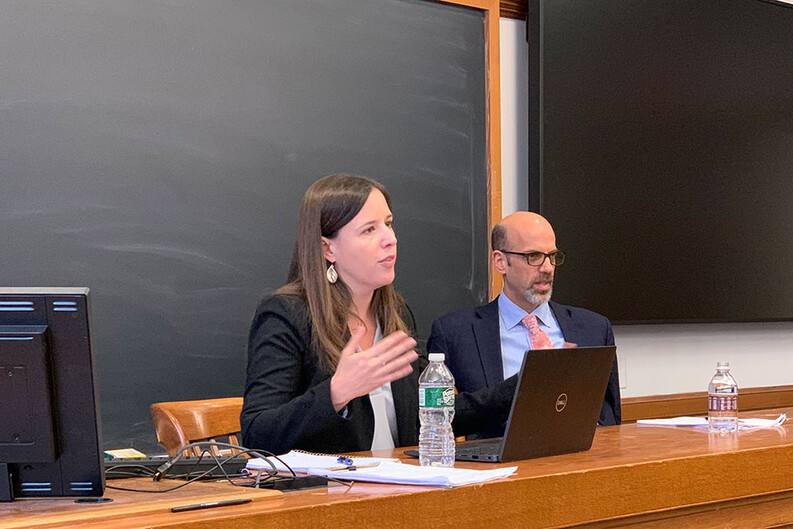Elizabeth Sepper on Converting Corporate Social Responsibility

At the Seminar in Private Law4 on March 3, 2020, Elizabeth Sepper5, Professor of Law at the University of Texas at Austin School of Law, presented her article “Converting Corporate Social Responsibility.” The piece, coauthored with James D. Nelson, explores how Corporate Religious Exemptions (CREs) fare against the logic and philosophy of Corporate Social Responsibility (CSR), which are often invoked to justify them.
The problem of CREs, Sepper said, concerns the question of whether corporations (artificial persons) should enjoy the right to be exempted from certain legal obligations on the ground of religious conscience objections. This question was affirmatively answered by the Supreme Court of the United States in Burwell v. Hobby Lobby in 2014. One of the arguments for this decision, Sepper said, held that if corporations are free to pursue socially beneficial, non-pecuniary objectives (like advancing workers’ safety, healthcare or education), they should be also free to pursue religious objectives. On this view, the justifications for CREs and for CSR are closely aligned. However, Sepper questioned the validity of this view.
Having analyzed the history of the theory and practice of CSR, Sepper argued that for a corporation’s activity to be considered a part of the category, it must meet three conditions and: 1) accept the regulatory minimums and going beyond them; 2) accept the positive law as a source of goals to be pursued; and 3) advance “social” interests of various stakeholders, not just of the (controlling) shareholders. In Sepper’s view, CREs fail on all three accounts: they are aimed at evading the regulatory objectives, advance personal goals of the controlling shareholders/managers, and do not incorporate the interests of other stakeholders or the public. In her view, the normative argument for CREs cannot directly stem from CSR.
Sepper concluded by considering what particular approaches to the tension between CSR and CREs can tell us about political economy. She spoke of the unclear boundary between the private and the public sphere, growing corporate power, and the division of rights and obligations in society. Her talk ended with applause and sparked a lively discussion.
Each spring, the Seminar in Private Law brings speakers from academia and practice to Yale Law School to present papers addressing a common theme. The 2020 Seminar is devoted to the theme of private law and inequality. The Seminar is organized by Guido Calabresi Professor of Private Law Daniel Markovits6 ’00 and the Yale Law School Center for Private Law7, which promotes teaching and research in contracts, property, and torts at Yale Law School and in the broader legal community.


